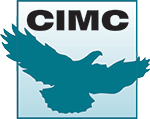Cherokee Freedmen and Their Fight for Acceptance
by Windy Goodloe, Seminole Indian Scouts Cemetery Association (SISCA) secretary
This year has been monumental for the Cherokee Freedmen. On February 22, 2021, the Cherokee Supreme Court ruled that the phrase “by blood” would be removed from its constitution and other tribal laws. According to the article “The Cherokee Nation acknowledges that descendants of people once enslaved by the tribe should also qualify as Cherokee,” CNN author Harmeet Kaur reported that this means that the Cherokee Nation has now formally acknowledged the Cherokee Freedmen. This acknowledgment means that the Freedmen have the right to tribal citizenship, meaning they are eligible to run for tribal office and now have access to resources like tribal healthcare. You are probably wondering, How did we get here?
First, a brief history lesson. From about the late 1700s to 1860s, several Cherokees enslaved African Americans. The practice started out slowly and increased over time. In an 1809 census, 583 “Negro slaves” were counted. It was estimated that, by 1835, there were 1,592 enslaved African Americans. Approximately 7.4 percent of Cherokee families enslaved people. Cherokee slaveowners took their enslaved with them on the Trail of Tears. By 1861, the Cherokee held about 4,000 enslaved African Americans. It is believed that, of the Five Civilized Tribes, the Cherokee were the largest tribe and held the most enslaved African Americans. Similar to the way slavery was practiced by European-Americans, the Cherokee instituted their own slave codes and laws that discriminated against slaves and free blacks (Wikipedia).
The Cherokees practiced slavery until 1866. Following the Civil War, the Cherokee Nation signed a treaty that emancipated those who had been enslaved and made them full citizens of the Cherokee Nation. Even though this treaty granted freedom to Cherokee Freedmen, their new status was not readily embraced by their Cherokee brethren. The leadership of the Cherokee Nation did work to bring the Freedmen into the fold by creating schools for their children and making sure they were allowed to vote in local and national elections. Unfortunately, many Cherokee citizens resisted this and fought the Freedmen’s integration into the Nation. Essentially, the resistance, which was based in racism, was due largely in part to having to further divide already scarce resources. Many Cherokee were not enthusiastic about having to share land with the Freedmen. And from this unwillingness to share, resentment grew, but changes to the 1866 treaty were not made until the 1980s.
During this time, the leadership within the Cherokee Nation amended the citizenship rules that had been in place for more than 100 years. Following this amendment, anyone who wished to be considered a member of the Cherokee Nation had to do so by proving their ancestry “by blood,” meaning they had to be able to identify a relative who was listed on the Dawes Rolls. This action immediately ejected and disqualified thousands of descendants of the Cherokee Freedmen. In an instant, the Cherokee Freedmen were stripped of their rights as members of the Cherokee Nation. And from there, they began to fight to be reinstated.
It would take almost thirty years for the Cherokee Supreme Court to rule that the “by blood” requirement was unconstitutional. On March 7, 2006, the Cherokee Supreme Court ruled that the Cherokee Freedmen were entitled to enroll in the Cherokee Nation.
A special election held by the Cherokee Nation on March 3, 2007 resulted in the passage of a constitutional amendment that again excluded the Cherokee Freedmen descendants from membership, unless they satisfied the “by blood” requirement.
The Cherokee Nation District Court voided the 2007 amendment on January 14, 2011.
The decision was overturned by a 4-1 ruling in the Cherokee Nation Supreme Court on August 22, 2011.
On August 30, 2017, the U.S. District Court ruled in favor of the Freedmen, and the U.S. Department of the Interior granted the Freedmen full rights to citizenship in the Cherokee Nation. It would take four more years for the Cherokee Nation’s Supreme Court to rule to remove “by blood” from its constitution and other documents. The Cherokee Freedmen’s hundred-year plus fight for recognition is an important example for all Black Indians who are still fighting for acceptance and recognition.
